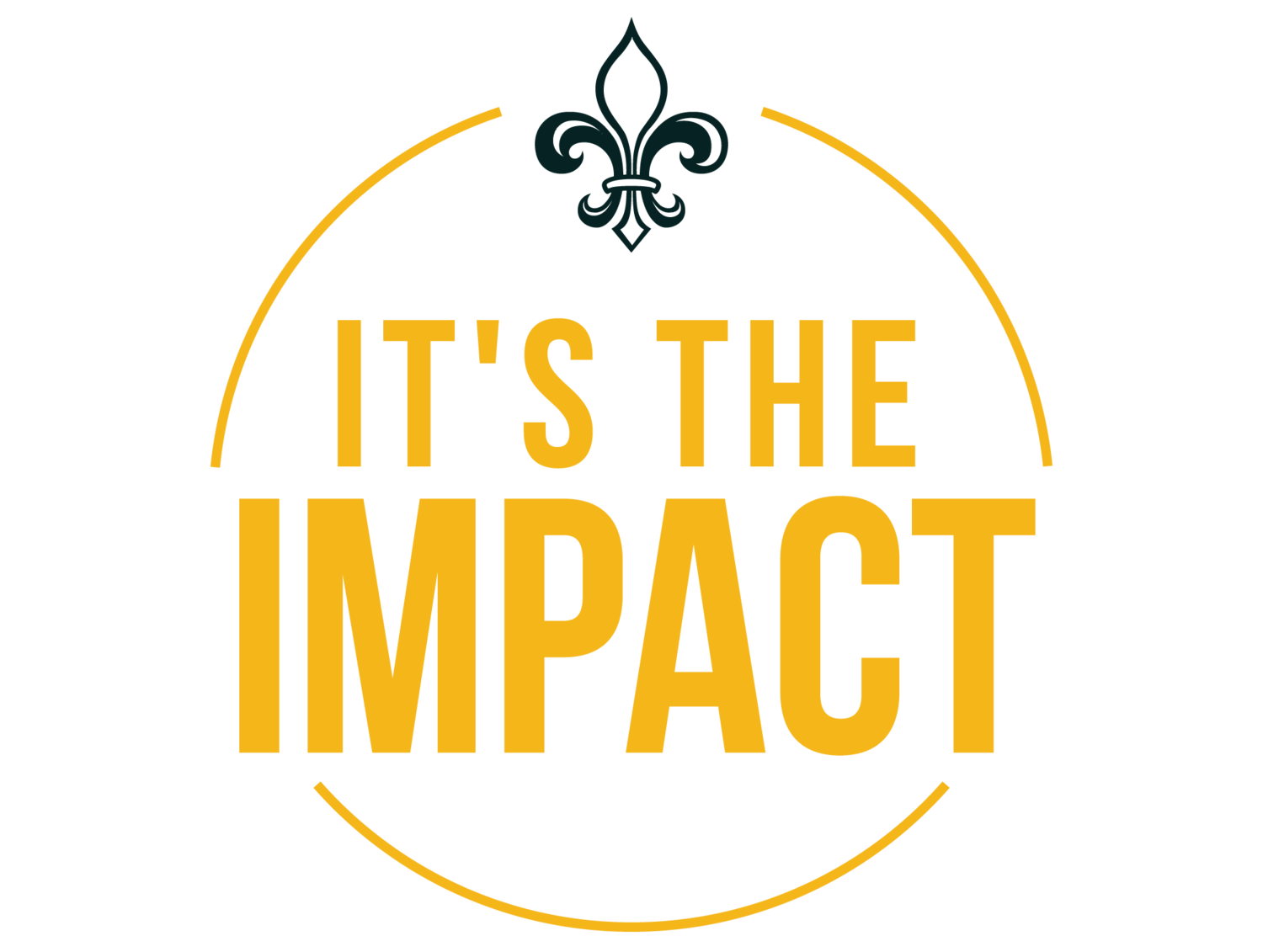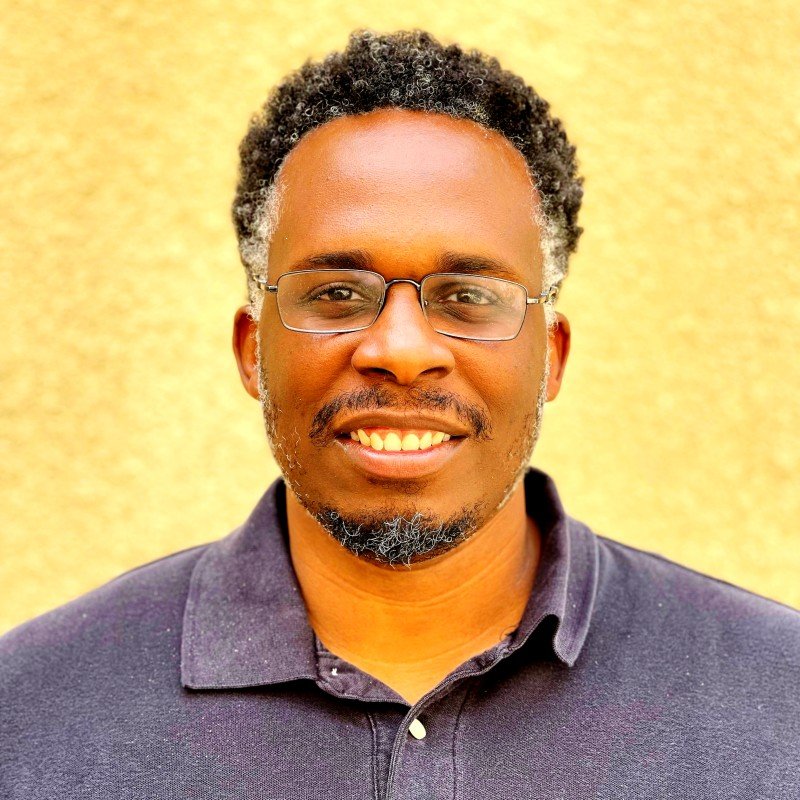Celebrated Changemaker
Coalition, Not Control: The Leadership Blueprint Behind the California Black Power Network
The California Black Power Network is revolutionizing how power is built, held, and shared in Black communities across the State of California - and we couldn’t be prouder to shine a light on its work. This is the kind of leadership that deserves to be seen and celebrated.
CBPN is a statewide coalition of over 45 grassroots organizations working to dismantle harmful systems and improve the lived experiences of Black Californians. One standout example of its impact: CBPN led the fight to redraw political district lines—winning fairer representation for Black communities at both the state and federal levels and shifting political power across California.
James Woodson, co-founder and founding executive director of CBPN, puts it simply: “Ultimately, our goal is to create a California where Black people thrive, not just survive.”
Celebrating Their Impact
CBPN is a force. It is truly a model of what’s possible when strategy, courage, and community power come together. Over the past several years, it has led large-scale voter engagement efforts that reached one million Black Californians, pushing for legislative changes and major policy wins on equitable redistricting, homelessness prevention, and reparations. CBPN blends community organizing, policy advocacy, cultural and narrative power, and direct action to build lasting power in Black communities—and to fight for equitable opportunities and access to basic human rights, including food, housing, education, healthcare, and safety.
Most recently, CBPN received new grant funding from the innovative group PIVOT to support reparations work in California. That funding will go to grassroots organizations in CBPN’s coalition, getting resources directly to communities leading the work.
Woodson’s impact goes far beyond CBPN. He helped build the African American Civic Engagement Project, the California Black Census and Redistricting Hub, and the California Black Freedom Fund—three significant efforts that formed the foundation of the critical infrastructure that anti-racist work in California depends on today. He also serves on the Alliance for Reparations, Reconciliation, and Truth (ARRT), and his relentless push for a more just, safe, and equitable world has earned widespread recognition, including being named a 2025–2027 Leading Edge Fellow.
Woodson’s record is extraordinary, but what stands out most is his fierce dedication to showing up for justice. “I’ve sacrificed mind, body, and soul for the organization,” he admits—and there’s zero doubt that he will continue to selflessly lead the fight for a more just and equitable future for Black communities.
How Leadership Support Helped Them Create Change
To lead this kind of change in the world, CBPN knew it had to live it inside the organization.
“I have a strong belief that the mission we fight for should be reflected not only in what we do, but how we do it,” Woodson says. “I have tried to make the organization I lead a model for what we say we want to see in the world. It doesn’t always play out perfectly in practice, but it’s an important part of what we do. We seek to set the standard for nonprofit management and culture.”
To put values into action and elevate the leadership team’s skill and performance, CBPN’s team joined It’s the Impact’s leadership support system, The Changemaker. The goal? To lean less on the founders and build confident, clear leadership across the board.
“I call it the Kobe Bryant effect,” Woodson says. “At times, Kobe was so skilled that his teammates would just stand and watch him do amazing things. However, they’d then lose because one person can’t win an NBA game on their own. Similarly, we can’t run an organization like CBPN on the backs of one or two people’s leadership. It requires everyone seeing themselves as a leader, stepping into that role, and doing the work to maximize their leadership.”
“The Changemaker gave us the tools to do just that,” Woodson says. “It helped the team lift our levels of leadership.”
That internal growth has been crucial to CBPN’s ability to keep moving forward as it achieves more, expanding rapidly and deepening its statewide influence. Woodson has now begun shifting his focus toward long-term strategy, infrastructure, and sustainability.
“We are about to embark on a process to transition me from overseeing day-to-day activities to focusing on building new capacities and pillars of work—including arts and culture programs, land acquisition and community development, a new for-profit entity, and other independent revenue generation opportunities,” Woodson says.
He’s no stranger to evolving with the work, but Woodson also knew he needed real, focused support to lead through this next phase.
“As we’ve grown in staff size, influence, credibility, and demands, my role has had to shift,” he says. “But I didn’t have the tools to shift it on my own.”
To lead with more intention and capacity, Woodson continued working with It’s the Impact through one-on-one leadership development and coaching.
“The experience came at the right time,” he says. “I was looking for a coach or therapist who would dive deeper and meet me where I was, during a time in my life when I knew I was going through transition.”
“Other options hadn’t worked for me, but this coaching did,” he says. “I’m now more effectively delegating in ways that promote transparency, accountability, and partnership—ways that may be uncomfortable for the team, but that will undoubtedly challenge them to step up their leadership and become their best selves as well.”
It’s been a privilege to support a group that brings such clarity, conviction, and care to the way they lead—inside their organization and out in the world.
His Advice for You
Here are five things Woodson wants other leaders fighting oppression and injustice to keep in mind:
Treat your organization like a tree or plant. “If it’s not growing, it’s dying,” says Woodson. This aligns with the Japanese concept of Kaizen, shared with Woodson by a mentor, which values the idea of continual improvement and forward motion.
Put It In Action: If things feel calm or like you have extra bandwidth, don’t wait—channel it. Use that space to take bold, proactive steps that drive impact.Commit to hard work and authentic relationships. As Woodson notes, “You get put in leadership positions because you’ve proven you can be trusted and are capable. And that comes through doing the hard work and building deep relationships.”
Put It In Action: Set aside 30 minutes each week to connect one-on-one with someone who matters—like a donor, partner, or key stakeholder. These small touchpoints keep your work grounded and your relationships strong.Stay humble and keep learning. Be open to learning from those around you, and accept that you won’t excel at everything. “Focus on the things you’re good at or that come naturally to you, and delegate the rest so you can lead from your strengths.”
Put It In Action: Identify one area where you’re stuck, and ask a trusted peer or mentor how they’ve handled similar situations. Try their approach and see what shifts.Focus on what you can control. One thing is always in your control: your own habits and actions. “At the end of the day, we can control one thing: our actions,” says Woodson. “Take a step back and evaluate: What can I control? What should I let go of?”
Put It In Action: Each month, name one habit or pattern—like perfectionism, people pleasing, or avoiding conflict—that isn’t serving you. Make a plan to change it.Embrace the tension of gray areas. Having a fixed, black-and-white mindset can be detrimental to progress. “Often, an answer isn’t this or that—it’s this and that, and it’s our job as leaders to determine how much of each is needed,” Woodson explains. “The best things in life can lie in the tension of two seemingly contradictory ideas, but people often break under tension rather than embracing it.”
Put It In Action: Stuck between two choices? Take 10 minutes to list all your options—then see if you can combine them into a third, better path forward.
The fight for racial justice has never been easy—but CBPN reminds us that it’s possible, and worth it. Its work is a rallying cry for all of us to stay in the game, stay connected, and stay bold.
“People, especially in the corporate and philanthropic arenas, are running away from the fight for racial equity and justice because of the political environment,” he explains. “But capitulation before an actual attack is cowardice, plain and simple. And as we all know from our days as kids, bullies only pick on those unwilling to fight back. Those on the sidelines need to stand with the rest of us who are in the game. There’s no reason to be on the sidelines right now.”
The leadership support CBPN received through The Changemaker helped them lead with more clarity, strengthen team ownership, and stay aligned through serious growth. If you’re ready to invest in your team’s leadership—so you’re not carrying it all alone—join the applicant list for an upcoming cohort. Spots are limited, and we’d love to support you.

